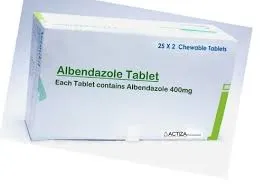- Afrikaans
- Albanian
- Amharic
- Arabic
- Armenian
- Azerbaijani
- Basque
- Belarusian
- Bengali
- Bosnian
- Bulgarian
- Catalan
- Cebuano
- Corsican
- Croatian
- Czech
- Danish
- Dutch
- English
- Esperanto
- Estonian
- Finnish
- French
- Frisian
- Galician
- Georgian
- German
- Greek
- Gujarati
- Haitian Creole
- hausa
- hawaiian
- Hebrew
- Hindi
- Miao
- Hungarian
- Icelandic
- igbo
- Indonesian
- irish
- Italian
- Japanese
- Javanese
- Kannada
- kazakh
- Khmer
- Rwandese
- Korean
- Kurdish
- Kyrgyz
- Lao
- Latin
- Latvian
- Lithuanian
- Luxembourgish
- Macedonian
- Malgashi
- Malay
- Malayalam
- Maltese
- Maori
- Marathi
- Mongolian
- Myanmar
- Nepali
- Norwegian
- Norwegian
- Occitan
- Pashto
- Persian
- Polish
- Portuguese
- Punjabi
- Romanian
- Russian
- Samoan
- Scottish Gaelic
- Serbian
- Sesotho
- Shona
- Sindhi
- Sinhala
- Slovak
- Slovenian
- Somali
- Spanish
- Sundanese
- Swahili
- Swedish
- Tagalog
- Tajik
- Tamil
- Tatar
- Telugu
- Thai
- Turkish
- Turkmen
- Ukrainian
- Urdu
- Uighur
- Uzbek
- Vietnamese
- Welsh
- Bantu
- Yiddish
- Yoruba
- Zulu
10 月 . 31, 2024 15:42 Back to list
Exploring the Effects of Tylan Injection on Animal Health and Treatment Outcomes
Understanding Tylan Injection Uses, Benefits, and Considerations
Tylan, scientifically known as tylosin, is an antibiotic belonging to the macrolide class, primarily utilized in veterinary medicine. Its injection form, often referred to as Tylan injection, is predominantly administered to livestock and poultry for a variety of health concerns. This article delves into the various applications of Tylan injection, its benefits, and considerations for its use.
Applications of Tylan Injection
Tylan injection is primarily used to treat bacterial infections in animals. It is effective against a range of pathogens, particularly those causing respiratory diseases, enteritis, and other infections in animals such as cattle, chickens, pigs, and sheep. For example, in poultry, Tylan is commonly used to manage outbreaks of mycoplasma infections, which can lead to severe respiratory issues and economic losses in the poultry industry.
In cattle, Tylan injection helps control and prevent mastitis, a painful inflammation of the mammary gland and udder tissue, by targeting the bacteria responsible for the condition. This can not only improve animal welfare but also enhance productivity by ensuring that dairy cows remain healthy and can produce milk efficiently.
Benefits of Tylan Injection
The advantages of using Tylan injection in veterinary practices are significant. First and foremost, it is highly effective in treating susceptible infections, often leading to quicker recovery times and reduced mortality rates. This is crucial for farmers who depend on the health of their livestock for economic sustainability.
tylan inj

Moreover, Tylan injection is generally well-tolerated by animals, with relatively few side effects when administered correctly. This safety profile makes it a preferred choice among veterinarians when treating various infections.
Additionally, Tylan can be administered via various routes, including intramuscular and subcutaneous injections, providing flexibility depending on the animal's needs and the specific situation at hand.
Considerations for Use
While Tylan injection has many benefits, there are important considerations to keep in mind. First, its use should always be under the guidance of a qualified veterinarian to ensure appropriate dosages and administration methods are followed. Improper use can lead to antibiotic resistance, an increasingly pressing issue in both veterinary and human medicine.
Furthermore, when treating animals intended for food production, it is essential to adhere to withdrawal times before the animal can be processed for meat or dairy products. This is to ensure that any residue of the antibiotic is cleared from the animal’s system, safeguarding food safety for consumers.
In conclusion, Tylan injection plays a crucial role in modern veterinary medicine, providing effective treatment for various bacterial infections that afflict livestock and poultry. Its benefits in promoting animal health and productivity are clear, but responsible use is paramount to mitigate risks associated with antibiotic resistance and food safety. As always, consultation with a veterinarian can help ensure the best outcomes for both animals and the agricultural industry.
-
The Power of Radix Isatidis Extract for Your Health and Wellness
NewsOct.29,2024
-
Neomycin Sulfate Soluble Powder: A Versatile Solution for Pet Health
NewsOct.29,2024
-
Lincomycin Hydrochloride Soluble Powder – The Essential Solution
NewsOct.29,2024
-
Garamycin Gentamicin Sulfate for Effective Infection Control
NewsOct.29,2024
-
Doxycycline Hyclate Soluble Powder: Your Antibiotic Needs
NewsOct.29,2024
-
Tilmicosin Premix: The Ultimate Solution for Poultry Health
NewsOct.29,2024













